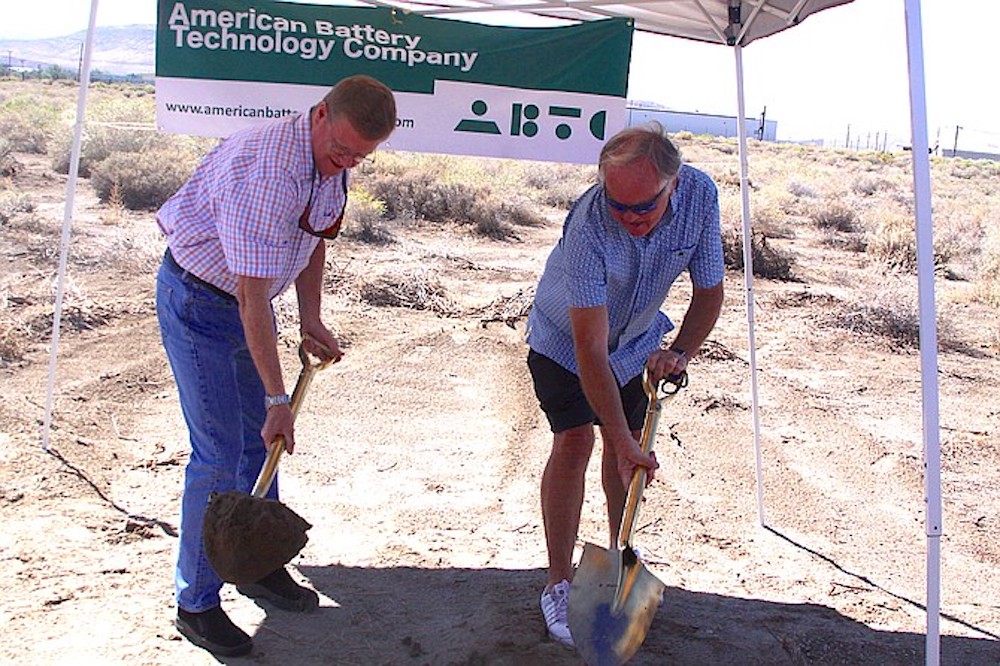A rendering of American Battery Technology Company’s 60,000-square-foot lithium-ion battery recycling plant it is planning to build in Fernley. Courtesy Photo
 Nevada Congressman Mark Amodei “breaks ground” with American Battery Technology Company’s Doug Cole at the project site on Aug. 27, 2020, in Fernley. Photo: Robert Perea
Nevada Congressman Mark Amodei “breaks ground” with American Battery Technology Company’s Doug Cole at the project site on Aug. 27, 2020, in Fernley. Photo: Robert Perea
 American Battery Technology Company estimates the project's direct and indirect local and state economic impact will be roughly $348 million over the coming decade, says Menka Sethi, company COO. Courtesy Photo
American Battery Technology Company estimates the project's direct and indirect local and state economic impact will be roughly $348 million over the coming decade, says Menka Sethi, company COO. Courtesy Photo